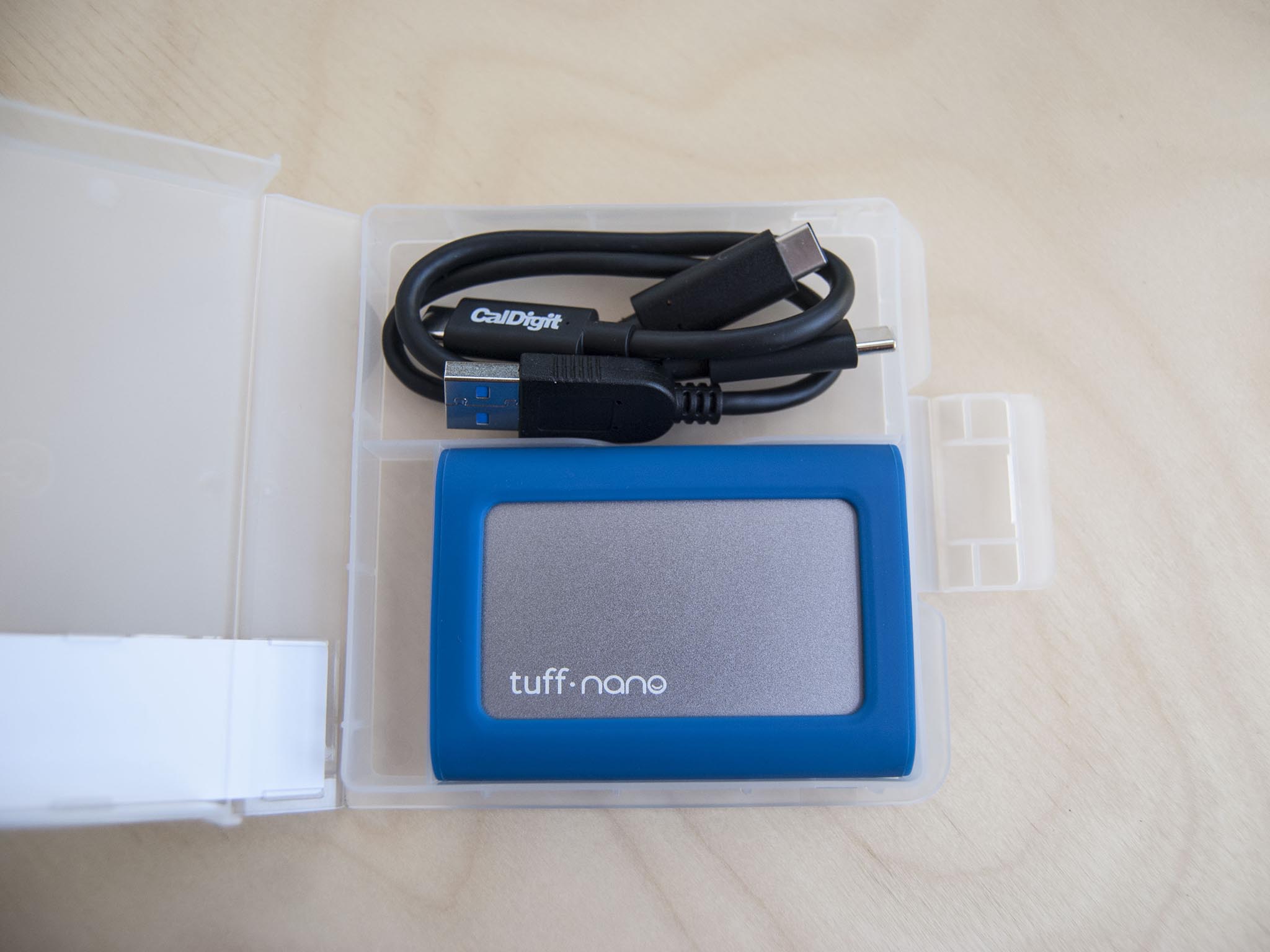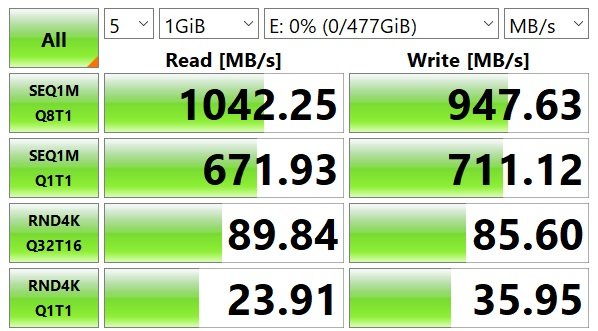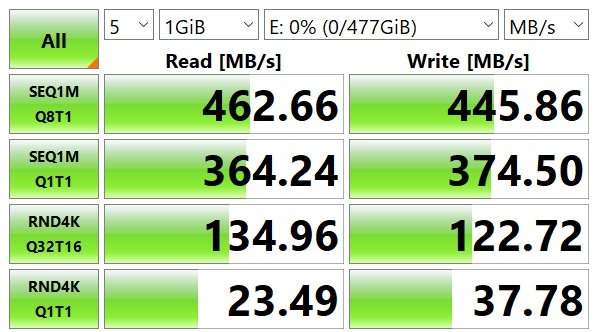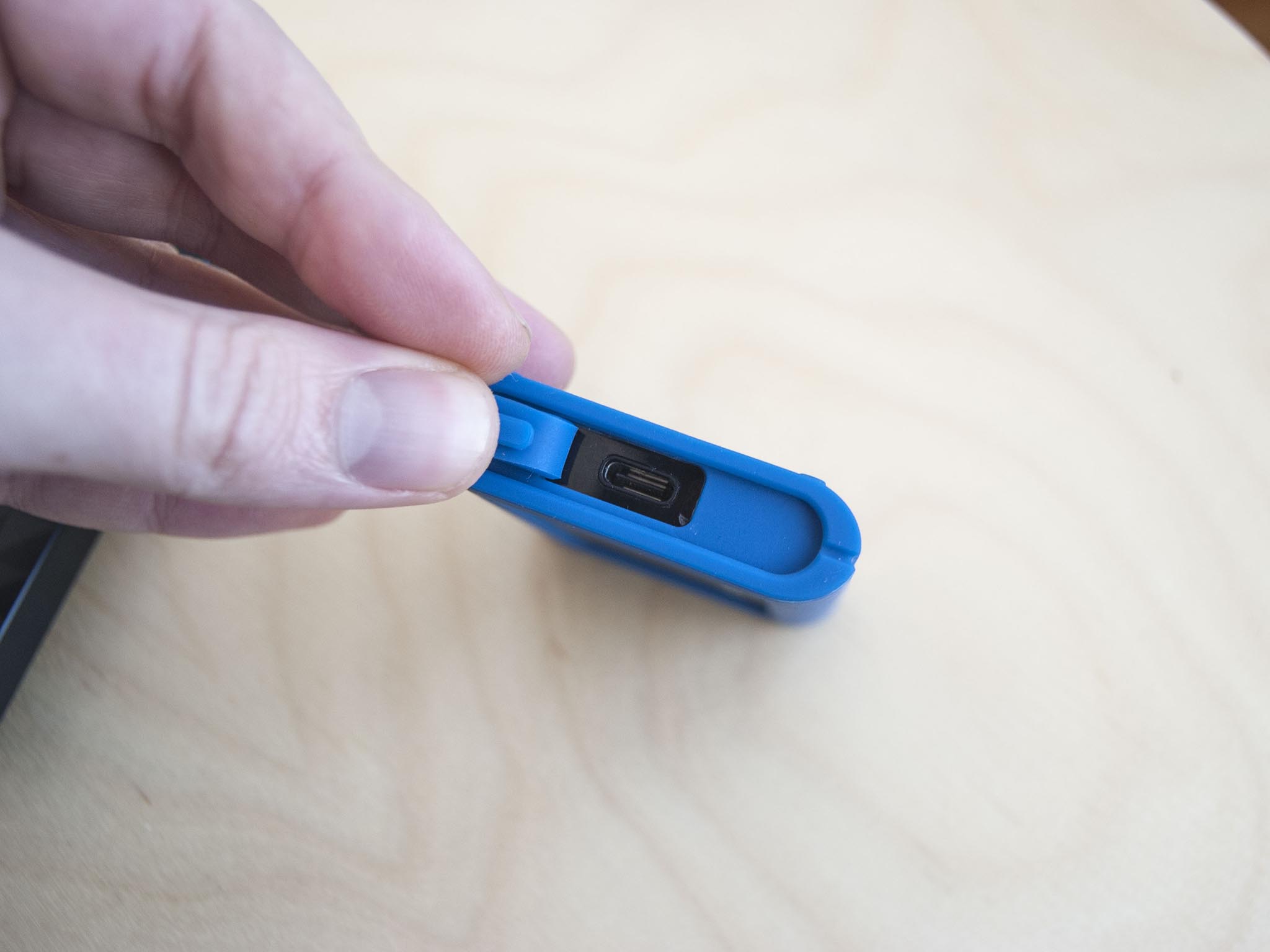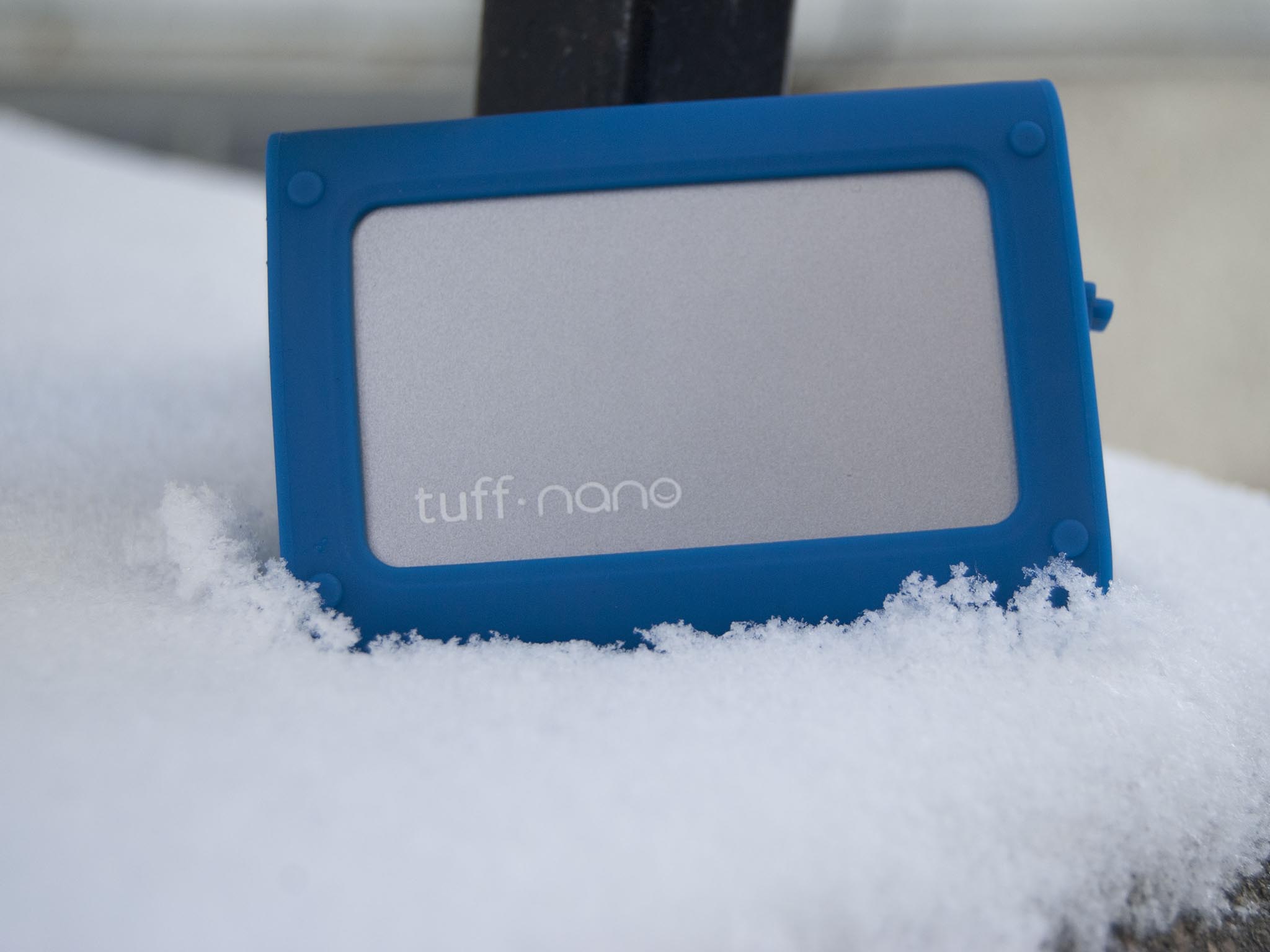
CalDigit, a popular provider of PC accessories including our pick for a Thunderbolt 3 docking station, has released a miniature version of its Tuff solid-state drive (SSD). The Tuff nano is advertised as a small, durable SSD that brings impressive performance, ideal for popping into a pocket or laptop bag when you hit the road. I gave the Tuff nano a week of use to see what it's all about and whether or not it's worth your time.
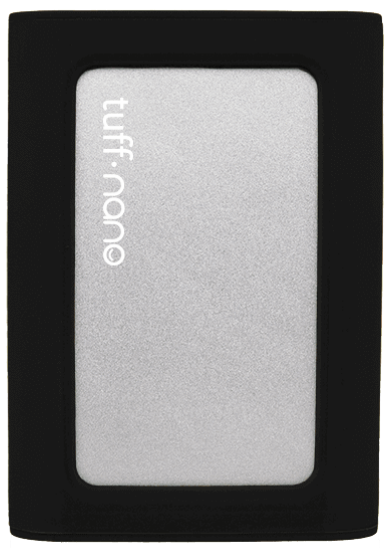
Bottom line: CalDigit's Tuff nano USB-C SSD combines compact aluminum chassis, lasting durability, and speedy performance, all for a competitive price. If you need a new external SSD, this should be near the top of your list.
Pros
- Small build easy to carry
- USB-C 3.2 (Gen 2) transfer speeds up to 10Gbps
- Four colors available
- Host cable is removable
- Tested against water, dust, and drops
Cons
- Comes formatted for macOS
What you'll love about the CalDigit Tuff nano SSD
The CalDigit Tuff nano SSD comes with a plastic carrying case — altogether only about the size of a standard external drive — with the SSD and a couple of host cables inside. One runs USB-C to USB-A if you have a laptop without USB-C, while the other runs USB-C to USB-C for optimal performance. They're both about a foot long, and, thanks to being removable, you don't have to worry about a cable breaking and rendering the entire SSD obsolete. The USB-C cable will work with Thunderbolt 3 ports since they use the same format, though you won't get any extra performance above what you get with standard USB-C. The drive, without cover, is about 2.99 inches (7.59cm) by 2.14 inches (5.44cm), with a thickness of just 0.57 inches (1.45cm). It's very portable.
The Tuff nano is easy to recommend if you need a compact, durable external SSD with superb performance.
You can keep the full carrying case around for traveling, but the Tuff nano is also cut out to go solo. Each unit comes with a removable silicone cover (available in four colors) that protects against shocks and drops. In addition to the cover, the entire drive is IP67 certified to guarantee it can withstand small particles of dust and up to one meter (3.2 feet) of water for 30 minutes. It's also been tested for drops up to three meters (9.8 feet). You can keep it in a pocket without worrying about it filling up with dirt and dust, and getting the drive wet shouldn't hurt your data. The USB-C port is waterproof, as is the aluminum cover. To back up the claims, CalDigit offers a two-year warranty
Inside the solid aluminum chassis is a Toshiba PCIe NVMe SSD that can handle the USB-C 3.2 (Gen 2) standard. That means it's capable of up to 10Gbps transfer speeds, which translates to about 1,055MB/s read speeds and 900MB/s write speeds when connected with USB-C. I connected the Tuff nano to my LG gram 15 through the USB-C port and tested with CrystalDiskMark.
With the SSD connected via USB-A, speeds were cut in half. You're still going to get a quality external drive, but if you want to take full advantage, you'll need to use it in tandem with a PC complete with USB-C port.
Under load, the drive warms up, but it doesn't get hot. The aluminum chassis does an excellent job of dissipating heat, even with the silicone cover over the top. Inside the SSD is a heatsink pad between the actual drive and cover, which no doubt helps. It's a solid build through and through.
Compared to some popular competition — like the Samsung T5 Portable — the Tuff nano brings superior speed, better durability certification, and a similar price. The T5 tops out at about 540 MB/s read speeds, it doesn't have IP67 certification, and it doesn't include a case. For a 500GB Samsung T5, you'll pay about $120, whereas as 512GB Tuff nano costs about $150. That $30 difference is undoubtedly worth the performance alone, especially if you're working with large files. And the durability bonus on top only sweetens the deal.
All the latest news, reviews, and guides for Windows and Xbox diehards.
What you'll dislike about the CalDigit Tuff nano SSD
The Tuff nano doesn't put up any empty promises, and I had no issues using it over a week. After unboxing it, I did have to reformat the drive to work with Windows 10, as it comes standard for macOS compatibility. Not a big deal, and it only took a couple of minutes to get it working optimally on Windows 10.
Update: There is now a 1TB version available for purchase.
Other than that, I wish there were sizes other than 512GB. CalDigit does claim to have the larger 1TB size coming sometime in the future, though there's not yet a set date. Once it's available, consumers will be able to choose better size that works for them. Because of the performance capabilities when working with large files, a 1TB version should prove popular.
Should you buy the CalDigit Tuff nano SSD?
If your PC has a USB-C port, the CalDigit Tuff nano is an easy buy. It performs admirably with read speeds above 1GB/s and write speeds not far behind, it's built well to resist dust, water, and drops, and it's small enough that you can slip it into a pocket or sleeve without much effort. If your PC is stuck with USB-A, the Tuff nano is still a solid buy, though you won't be able to take full advantage of its performance.
As long as you don't currently need a size larger than 1TB and don't want to take advantage of a Thunderbolt 3 SSD for truly insane performance, the Tuff nano should be near the top of your list.

Cale Hunt brings to Windows Central more than nine years of experience writing about laptops, PCs, accessories, games, and beyond. If it runs Windows or in some way complements the hardware, there’s a good chance he knows about it, has written about it, or is already busy testing it.

